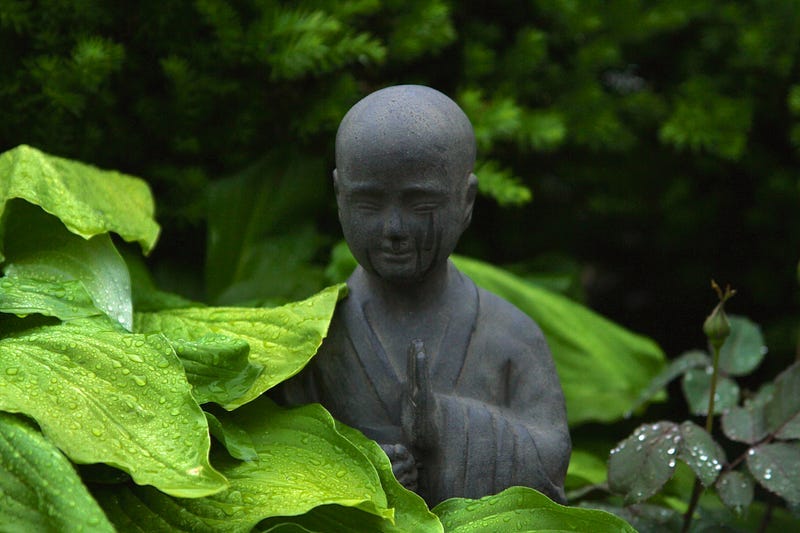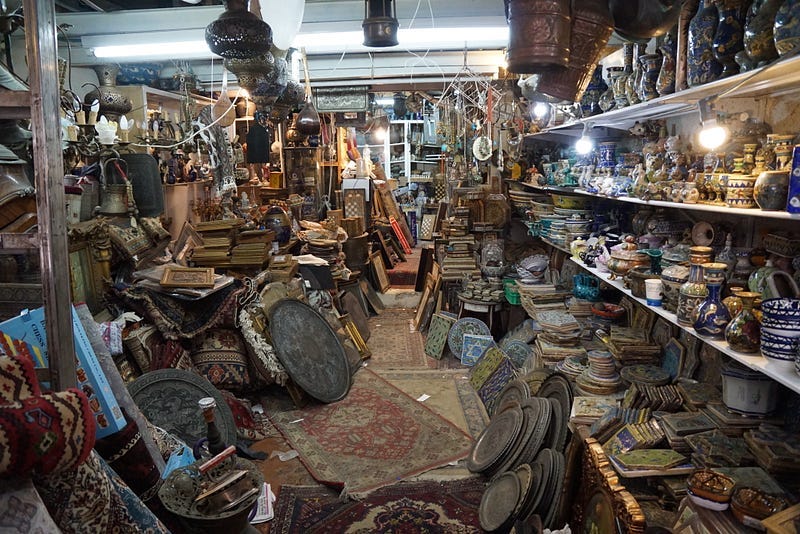Are Possessions Inherently Bad? Must I Give Them All Away to Be Happy?
Don’t become a monk, do this instead.
Don’t become a monk, do this instead.

The First Purge
The first time I lost everything, I was five years old. For most American boys, the first introduction to shaving (or “buzzing”) your head comes from when you first get lice. I remember my mother led me to the back porch. There, she buzzed my head outside, took me to the bathtub, and scrubbed my scalp. Soon, it was time to lose my toys too.
Lice are tiny bugs that live inside your scalp, buried under your hair, and are common in young boys and girls in the United States. The difference is that for girls, due to social norms, you don’t want to shave their heads, so you try to wash the hair and scrub their scalps with smelly shampoo. For boys, but, you can shave their head completely bald, and the mocking at school won’t be too awful.
Lice live on everything until they can find a host to eat. So, we had to go through my toys and either clean, trash, or donate everything. Stuffed animals were the worst to clean because of the long fur where the bugs could live. Most of my stuffed animals were trash. Plastic toys we kept since those were easy to spray or wipe except for the broken or toys that were missing pieces. Overall, I took the experience well. But it wouldn’t be the last time I gave up my possessions.

Everyone knows Buddhist monks and their desire to give away their possessions. In Buddhism, attachments are negatives that cause suffering. The concept is one of the four noble truths of Buddhism. This noble truth is why monks shave their heads. Since hair is often a sign of social status in human cultures, ridding yourself of the attachment to your hair is a sign of letting go of those desires.
In Taoism, yet, we are taught that “good and bad” are not inherent in nature. They are, in fact, artificial concepts. For example, here is chapter 28 from the Tao Te Ching (Feng-English trans.):
A good walker leaves no tracks;
A good speaker makes no slips;
A good reckoner needs no tally.
A good door need no lock,
Yet no one can open it.
Good binding requires no knots, Yet no one can loosen it.
Therefore the sage takes care of all men
And abandons no one.
He takes care of all things
And abandons nothing.
This is called “following the light.”
What is a good man?
A teacher of a bad man.
What is a bad man?
A good man’s charge.
If the teacher is not respected,
And the pupil not cared for,
Confusion will arise, however clever one is.
This is the crux of mystery.
As you see, a good man needs a bad man; in return, a bad man needs a good man. Thus, neither is bad nor good. They are both people! Pain and suffering arise when we begin to separate each other into categories, and then define who belongs inside them.
Owning a TV isn’t inherently a negative aspect of life nor disharmonious with the Tao. But, if we define ourselves or others through that TV, it is not in harmony with the Tao. Your intentions and actions cause you to live outside the Tao’s balance, not the possessions you own.

The Second Purge
When I first internalized chapter 27, I examined my life and asked, “How do I define myself? Is it through my clothes or my books? Is it through my computer or my car? Do I need any of this?” And you know what I discovered? I didn’t! So began the second great purge. of my possessions.
But, this time, I wasn’t told to do so by my parents due to bugs on my head, but I chose to due so because of the bugs in my spirit. I rid myself of T-shirts I kept for over 15 years, shoes I never wore, boxes of DVDs, and computer equipment that gathered dust in the garage.
And then, once I had given up those items that defined me, I was happier. I didn’t give away all my possessions as none were “bad.” Instead, I gave up those items I used to define myself. I didn’t give up my car, but I gave up my old drum set, which had defined my life for 15 years but hadn’t played in as long.
Afterward, life seemed less cluttered and slower. Getting rid of the distractions caused me to see what I had in front of me and not what I had around me. My relationship with my kids, dogs, and wife all improved because I could focus more on them and not on what I kept having to take care of around them.

Remember, you don’t have to be a monk to experience a joyful and meaningful life. But, you should look around and examine what matters to you. Everything else, you ask? It’s noise and a distraction.
Please don’t let your definitions of objects and people define you; in turn, don’t define those same objects or people.
Stay strong and thank you for reading.
If you enjoy Patrick’s articles and want to read more, please see his website for his book of poetry, follow him on Mastodon, or clap, comment, and subscribe! You can also Buy Him A Coffee or become a patron on Patreon.
If you want to help support TTO, please consider donating to our GoFundMe so we can trademark the name! It would mean the world to us!
The Taoist Online Trademark Application, organized by Patrick Stewart
Hi, my name is Patrick Stewart and I've wanted to be a writer for over 20 years. When I was 18, I started to write…gofund.me


